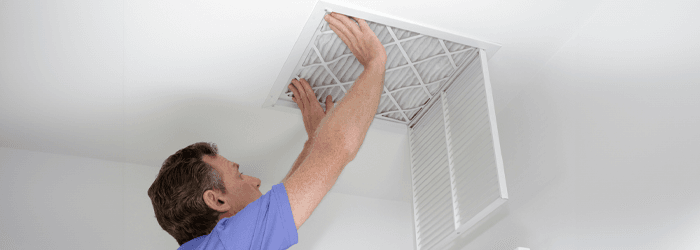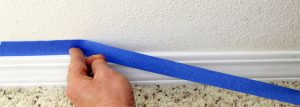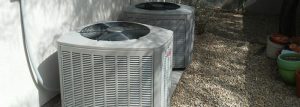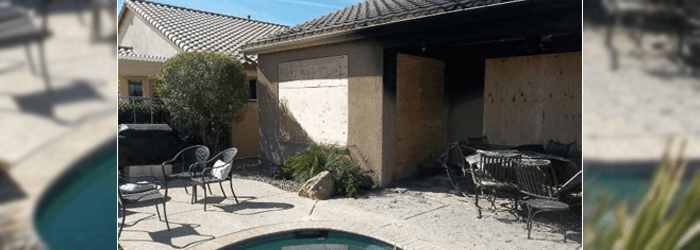Ensuring your home’s filtration system operates at its best is not just about cleaner air; it’s about protecting your entire HVAC system. With help from a Rosie on the House air conditioning and air filtration expert, we get into the critical maintenance task of changing filters and uncover why getting it right is paramount for both indoor air quality and equipment longevity.
Changing Your Air Filters
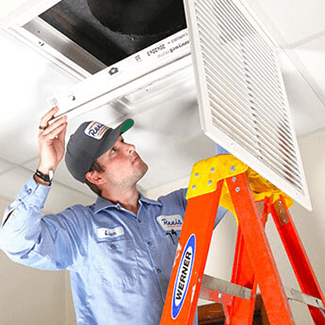
Making sure your home’s air filters can do their job is one of the most important maintenance tasks you can perform around your home. Replacing them regularly not only helps make indoor air quality better, but it also decreases the wear and tear on your equipment.
The purpose of a filter is to remove particulate matter from the air. This not only protects our lungs but also benefits our air conditioning equipment. Poor filtration prevents efficient heat transfer if the coils in your system are dirty.
The quality of air filter is closely tied to indoor air quality and is a concern for many homeowners. The air quality moving about our lungs and home is affected by the filters in our air conditioning system. This topic is so important, that we called upon Todd Russo of Rosie on the House Certified REEIS Air Conditioning to help us understand how to get our home filtration right.
Using The Wrong Air Filter Will Damage Your AC
Todd tells us that the most common issue they see with filters is pressure buildup or static pressure at the filter. Picture a garden hose with your thumb over the end to restrict the flow. The pressure builds up. This is similar to the air restriction when you close the vent and the door to a room that is not in use. Both situations put unwanted pressure on the system, causing extra wear, tear and damage.
3 Important Air Filter Facts To Note
-
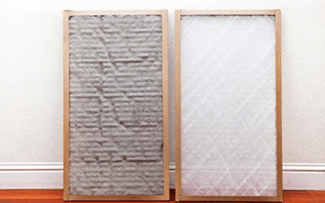
Old, dirty air filter (left) versus a new, clean air filter (right). Which one would you want to breath through? Avoid Pressure Buildup | When the pressure builds up, those particulates you are trying to capture can be forced through the filter into your equipment (depending on the size of the openings in the filter).
- Check the MERV Value | A filter’s effectiveness is rated by Minimum Efficiency Rating Value or MERV. All filters are rated somewhere between 1 to 20. The number one indicates the largest opening, and 20 is the smallest. We generally recommend residential filtration between 11 and 13. Learn more about the MERV rating on the EPA’s website.
- Fit The Filter Properly | Most filters are not tightly installed in the air return register/vent. Increased pressure will force unfiltered air around the filter. This is worse than the air being forced through the filter, as filtration is completely bypassed and will disable the MERV rating.
The pressure buildup forces your system to work harder to move the air into your home. Asking your AC unit to work without proper filtration is like asking a marathon runner to breathe through a straw.
Surface Area, Surface Area, Surface Area
There is more to filter size than length and width. Todd tells us that surface area is the real measure of how effective a filter is. Most of us have seen pleated filters that are around an inch thick. These are common in the hardware store. The reason for those pleats is to increase the filter’s surface area, which helps to reduce the pressure buildup behind the filter. The pleats help; however, Todd finds that the typical filter needs to be improved to handle the demand load of our systems. He tells us that an improperly sized filter can reduce the system’s cooling capacity by as much as 40%.
Your AC air return register/vent has a fixed length and width determined by your system’s capacity, required duct size, and fan speed. These are established by first determining the cooling needed and designing the system correctly from the start. Given the fixed dimensions, the only way to effectively increase the surface area of a filter is by its depth.
When A 4-Ton Unit Accidently Becomes A Three-Ton Unit
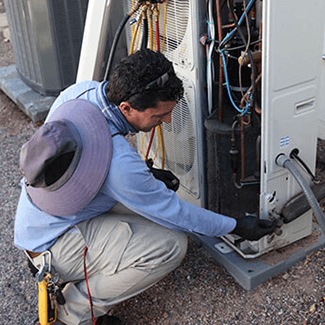
Restricted airflow greatly diminishes the performance of an HVAC unit. The AC system becomes less efficient and has difficulty meeting your cooling needs. The added pressure buildup also causes the fan to work against itself to push the air through the filter. Over time, the cost of operating the AC equipment increases. The wear and tear on the equipment can cause you to replace the unit sooner than when a system operates as efficiently as it is designed to.
So, What’s The Best Air Filter?
Todd has worked with manufacturers to help design a different filter, one with deeper pleats. The deeper pleats increase the filter’s surface area, allowing more air to pass through without tremendous equipment-killing pressure.
Todd’s filter addresses the frame or rim of the filter as well. The rim is manufactured as a gasket. This gasket helps seal the filter edges more securely in the air return register/vent, avoiding the “leakage” often associated with standard filters from the local hardware store.
Overall, with this filter, the efficiency of air movement is improved, the pressure buildup is significantly reduced, and the particulates you don’t want in your air are captured.
Where can you by them?
You can find Todd’s specially designed air filters on REEIS Air Conditioning website. There is a caveat, though. Todd recommends that a professional examine your system to determine whether the filter grill is properly sized to your system’s capacity. Buying the wrong size filter and not having it properly fit makes its efficiency ineffective, defeating the whole reason for making the change.
Don’t Forget To Change Your Air Filters Regularly!
Todd suggests changing the 1in paper pleated filters once a month and running your system on ventilation mode for the best air quality.
He recommends MERV 11 filters be changed every six months at a minimum and MERV 13 filters to be changed every four months.
If you want to talk with the professionals at REEIS, you can call them at (480) 581-5873 or contact them through their website by clicking here.
###
CONTENT PARTNER | REEIS Air Conditioning
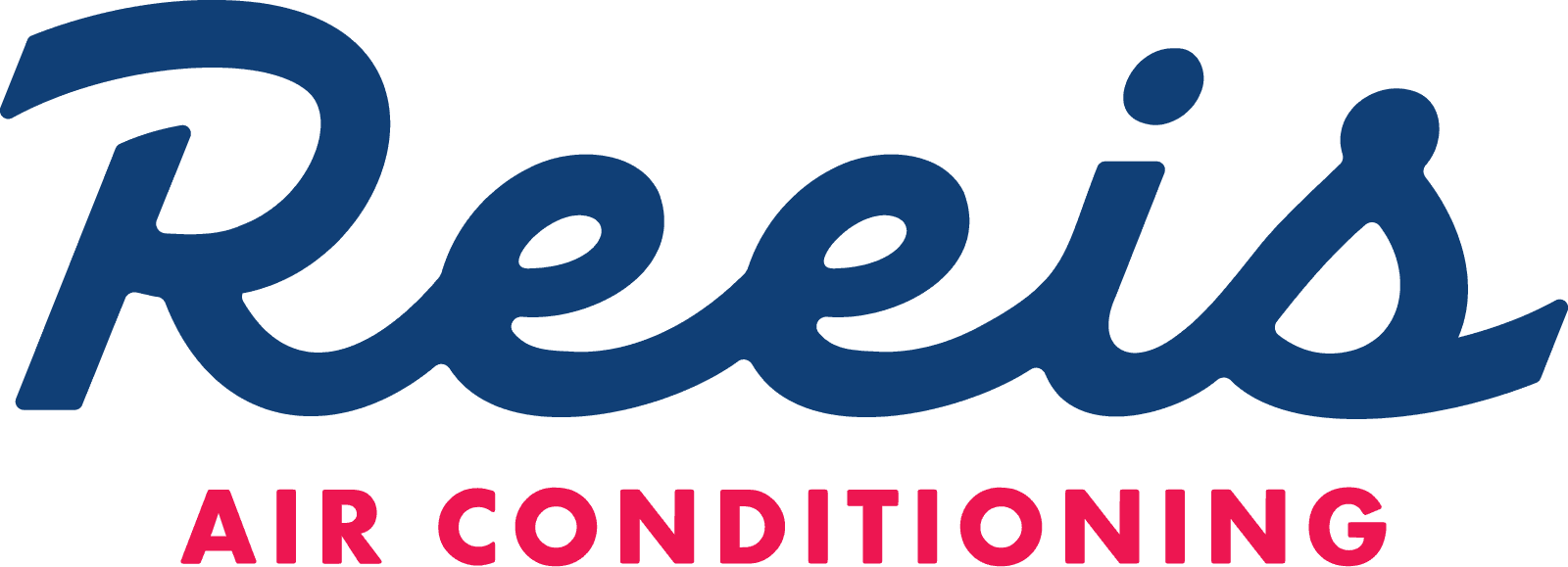
REEIS Air Conditioning prides itself on being an honest, reputable company who delivers home performance results, not false promises. We accomplish this by taking a “whole house” approach rooted in building science.
PODCAST
Air conditioning failures can be traced to not changing air filters on a regular basis. Todd Russo of REEis Air Conditioning explains those filters are not only for air quality. They can strain the unit’s components leading to costly failure. Learn more about changing your filters for a more comfortable home.
Podcast Archive With Expanded Content and Resources
PHOTO CREDIT
- Shutterstock/iStock

